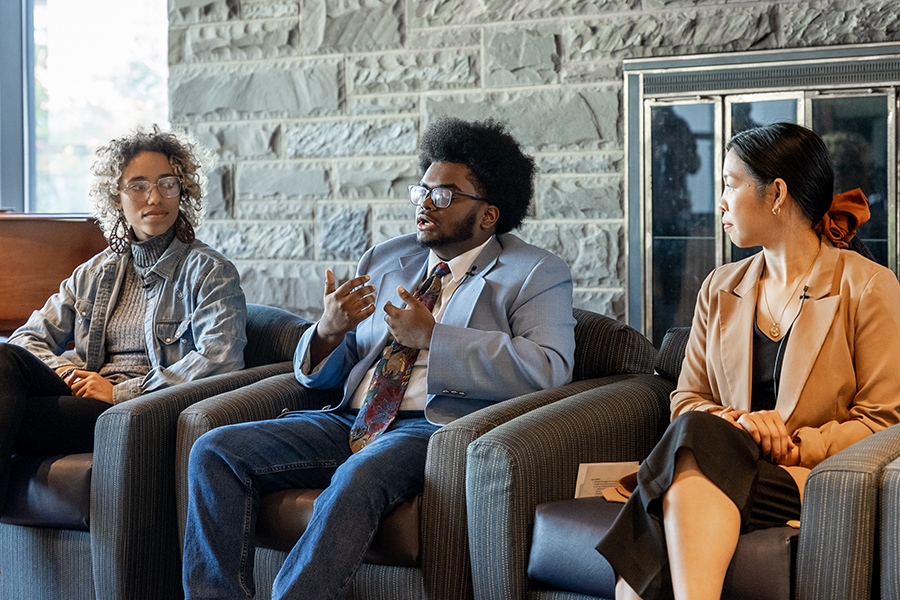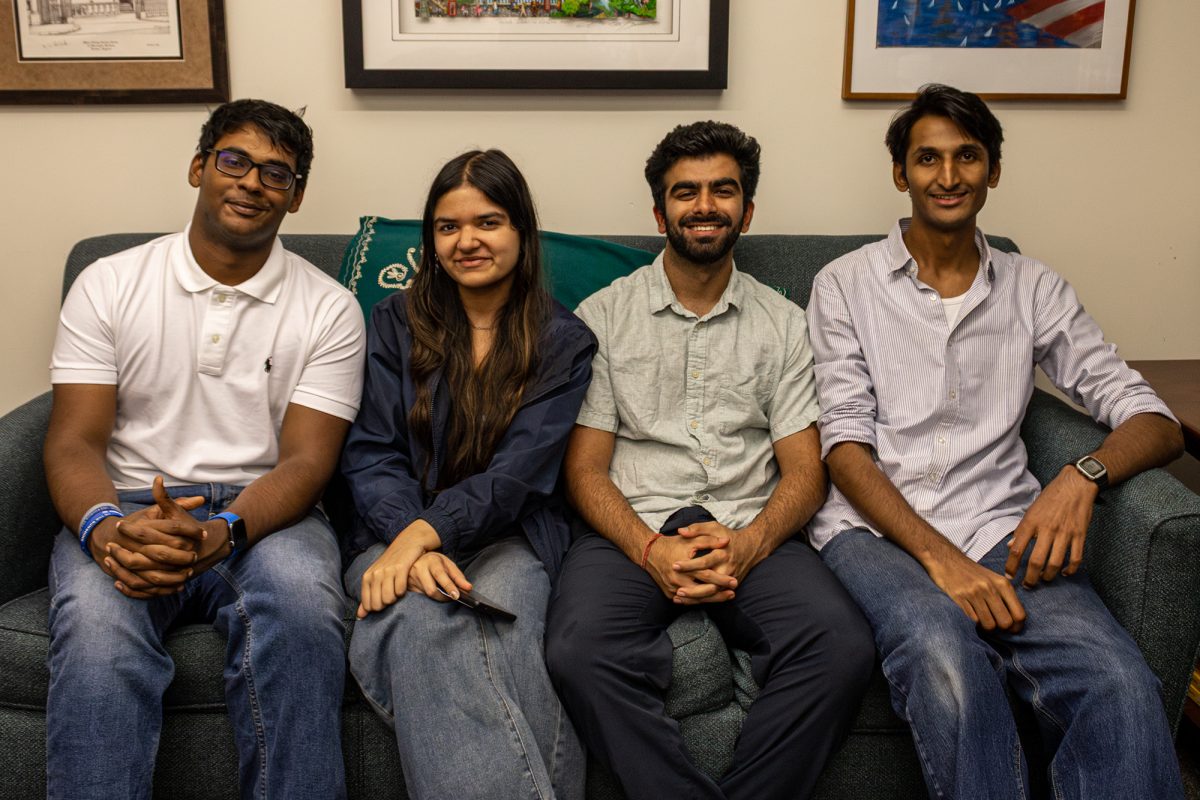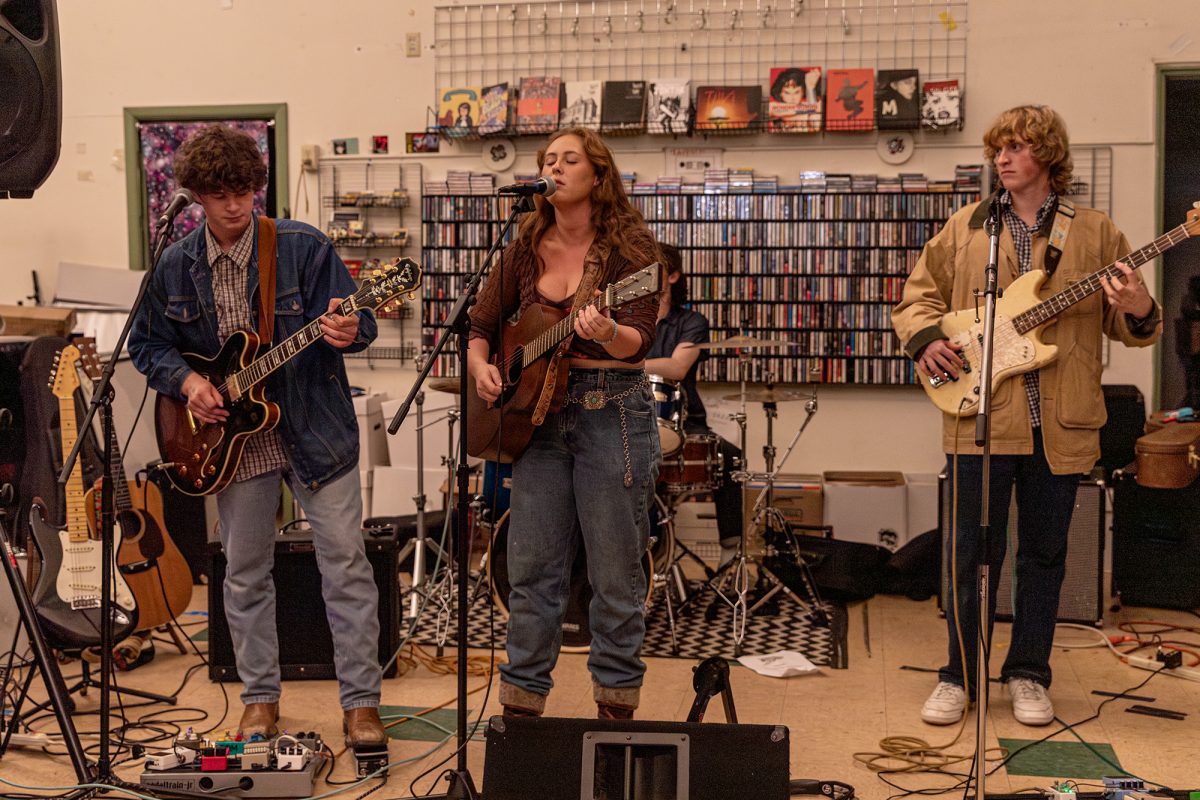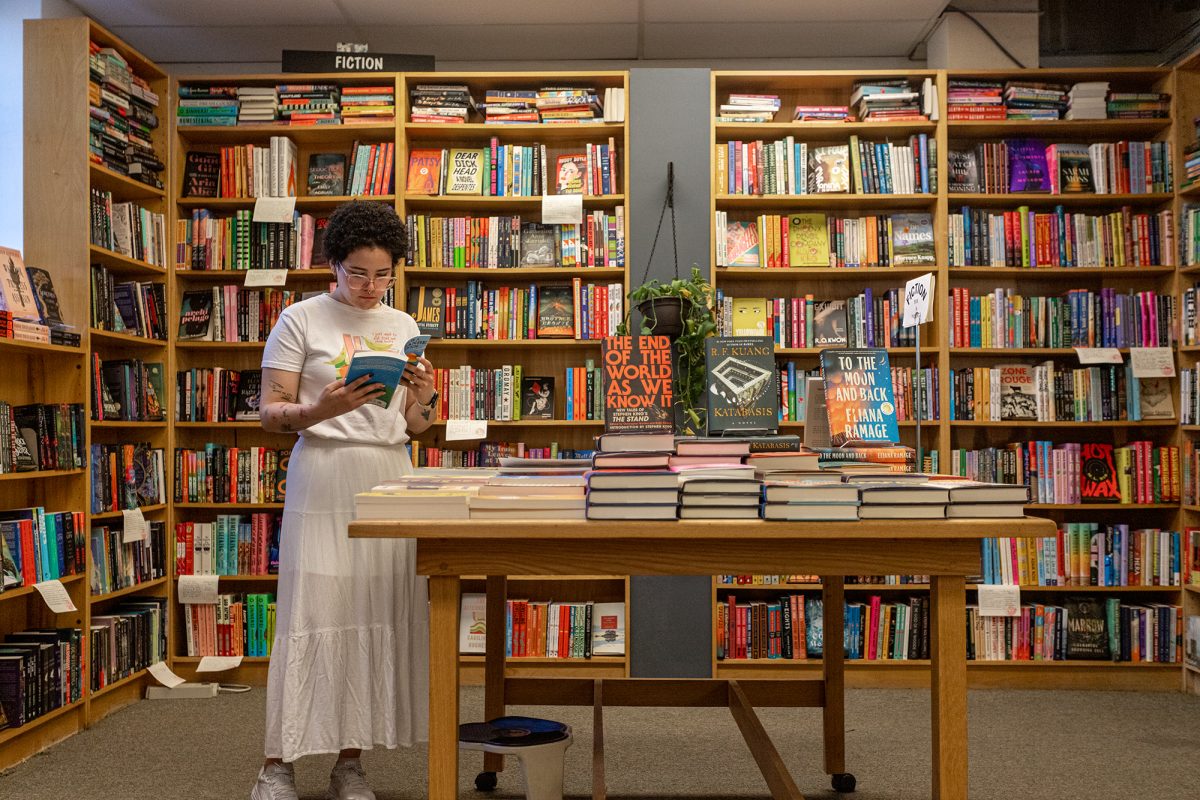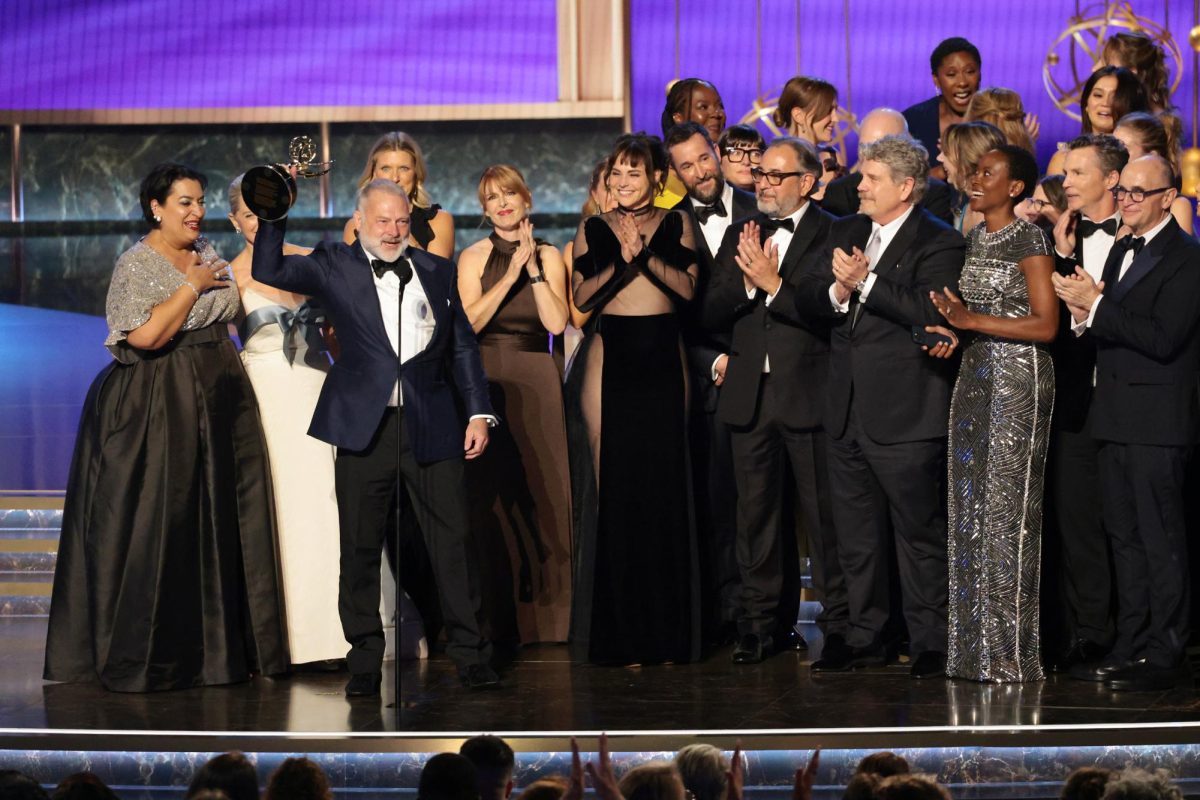A panel discussing the experiences of students participating in the Martin Luther King Jr. Scholar Program was held Oct. 24 in Clark Lounge.
The panel was organized in honor of the 20th Anniversary of the scholarship and was composed of former and current MLK scholars. Shadayvia Wallace, program director for the MLK Scholar and First Generation Programs, moderated the panel. The second half was an informal mixer where guests could speak to past and current students on a more personal level.
The MLK Scholar Program is a scholarship established at Ithaca College in 2002. Its goal is to encourage the pursuits of students of color, as well as to develop their leadership skills and also to create community among them at the college. Students organize community service projects and attend monthly meetings for the program, as well as go on organized trips. As of October 2023, the program has 38 scholars at Ithaca, with 11 graduating in May 2024.
The panel featured Jamie Hom ’13 and Olivia “Via” Carpenter ’22, as well as Christopher Morris ’25. Both Morris and Carpenter described their relationship with their contingents as being their first experiences with the school’s community and a consistent support network throughout their time at the college.
“As a freshman and a sophomore in college, I never left my room,” Carpenter said. “I did not know anyone outside of my cohort and a few people in my classes. I didn’t really make friends because I was very inwardly focused at the time.”
Morris said his cohort helped each other transition back into in-person schooling after having spent so long in quarantine. Once things had returned to normal, that bond remained.
“One of my biggest drives right now is making sure that I’m staying up to where my cohort is staying because they push me so much more to adapt and be on top of my game,” Morris said. “To make sure, ‘Hey, I do have my assignments done,’ ‘Hey, I do have my 20 hours [per week volunteering locally] done’, ‘Hey, making sure I have that 3.3.’”
Morris is a member of the college’s Brothers for Brothers organization. He has goals of pushing against what he saw being the narratives of mainstream sports journalism, such as the underpromotion of the WNBA and more representation of Black athletes in the news.
“I want to be the voice for Black men to change that,” Morris said. “The way I see it … ESPN, Fox Sport, CBS, they have their scripts, they have their agenda. I want to be the voice to push against that and to support my race.”
Carpenter attended the college during the pandemic and experienced a reduced version of the program, as they were unable to go on as many trips as other contingents. For her community service project, Carpenter began her own business, Via’s Cookies, which sold dietary-inclusive cookies. Five percent of the profits from these cookies would go into supporting students of color and LGBTQ+ students, both through direct funding and through various programs aimed at young people.
Carpenter was a mentor to students ages 8-to-18 in a program known as Youth Entrepreneurship Market (YEM) and works as a member of the Fish Tank, an enterprise aimed at assisting young aspiring entrepreneurs in a Shark Tank-style competition in Ithaca.
The emphasis on leadership and community was exemplified by the various community service projects the scholars were instructed to undertake during their tenure at Ithaca. Along with Via’s Cookies, Hom organized her Girl Scout troops into an informal mentorship group tackling cyberbullying and the difficulties of navigating the internet as a young woman. Hom currently works at Cornell as the associate director of Student Programs for the Hans Bethe House.
“I ran this program from the ground up and brought it here to Ithaca for middle school girls,” Hom said. “I had a group of young teenage women and worked with them in understanding this transition as adolescents, into teenagers, into hopefully being powerful young women. That was something really impactful during my time at IC.”
The panel ended with a loud round of applause. MLK Scholar junior Adriana Ramirez said she felt optimistic about the impact of the panel.
“I think it was very well executed,” Ramirez said. “I appreciated all their thoughts and ideas and things that they imparted on us. I’m very grateful that people from all different cohorts came to talk. A lot of us have varied experiences because of COVID so I can relate to them on certain levels, but I’m glad that someone from 2013 that had the full experience was able to come and talk to us.”
MLK Scholar and sophomore Johani Amezquita attended along with her peers to speak to the guests about her experiences as a current scholar.
“In a sense, I was able to see different personalities, different stories and being united into one room,” Amezquita said. “In a space that was all white, and you’re the only person of color, having this type of unity is great. Not just our monthly meetings that we have in our cohort, just being able to see the alumni.”
At the end of the panel, one alum, Margo Chaly ’08, took a moment to speak to the scholars, gathered in the back of the room, about the legacy they were carrying as MLK Scholars. Chaly was a member of the third contingent of the program and produced a group picture of her cohort, which she had printed out and brought with her in remembrance of her time at Ithaca.
“I’m very, very lucky and one of the few people who participated in this event,” Chaly said. “Dr. King’s daughter Yolanda was in a performance at Cornell, and a few of us had the opportunity to meet her afterwards with a small audience. I have the picture here. I usually keep it in a frame but I brought it today.”
The picture was of her, her cohort and Yolanda King behind the curtain of a stage.
“We told her about the program and its mission, its purpose, where the students are coming from — there were only three classes at the time — what we were doing, what our thoughts are, what our dreams were, how we wanted to take this program and what we could potentially get out of it,” Chaly said. “And she said to us, ‘Oh my goodness, if my daddy knew what you all were doing, he would be so proud.’ That is a huge legacy that you will carry with you.”
Ramirez said she wished other students, like students of color who are not MLK Scholars, had been able to experience the panel, outside of donors or those directly involved.
“I would love to see more people in attendance,” Ramirez said. “I know they promoted it very well, but it’s just more people to understand and know what the mission statement is of the MLK Scholar Program, and just be in a community where they can be in a safe space and understand each other and things like that. Be involved in conversations which are so important to the development of Ithaca College as a whole.”


